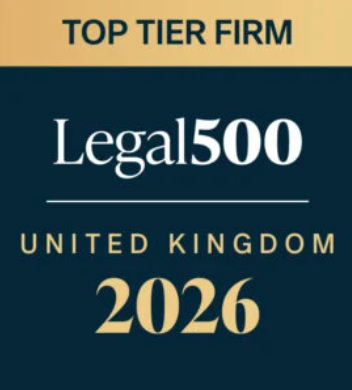When acquiring or developing land, you may encounter restrictions known as restrictive covenants. These covenants can significantly impact the potential use and value of your property. Understanding how to enforce or challenge these restrictions can protect your interests, enhance your property’s potential, and prevent costly disputes.
Relevant Legal Frameworks for Restricting Land Use
Restrictive covenants are governed primarily by property law principles and statute. Key legal frameworks include:
- Law of Property Act 1925 (LPA): Establishes rules on restrictive covenants and the circumstances in which they bind successors in title.
- Land Registration Act 2002 (LRA): Provides for the registration of covenants on the Land Registry title register for the property, making them enforceable against future landowners.
- Common law principles: Interpretations established by case law clarify the enforceability and limits of restrictive covenants.
Practical Steps to Enforce a Covenant
- Initial Communication: Clearly inform the offending party of the breach and your intention to enforce the covenant.
- Gather Evidence: Document any breaches with photos, videos, or written statements to support your case.
- Legal Assessment: Seek professional advice to determine your chances of successful enforcement.
- Negotiation/Mediation: Attempt resolution through informal discussions or structured mediation.
- Legal Proceedings: If necessary, instruct a solicitor to apply for an injunction or damages. Timescales can vary, typically ranging from a few months to over a year, depending on complexity. Costs also vary significantly based on the extent and length of proceedings.
Can You Challenge a Restrictive Covenant?
Yes, restrictive covenants can be challenged under specific circumstances. Common grounds include:
- Obsolescence: The covenant is no longer relevant or practical due to changes in neighbourhood characteristics.
- Consent: All parties benefiting from the covenant agree to modify or discharge it.
- Impediment to reasonable use: The restriction significantly hinders reasonable use of the land without benefiting other parties substantially.
Statutory modification or discharge
Under section 84 of the Law of Property Act 1925, property owners may apply to the Upper Tribunal (Lands Chamber) for modification or removal of restrictive covenants.
Practical Steps to Challenge a Covenant
- Evaluate the Covenant: Identify the covenant, beneficiaries, and determine grounds for a challenge.
- Engage Beneficiaries: Seek informal consent or agreement from beneficiaries to vary or remove the covenant.
- ADR Methods: Consider mediation to facilitate agreement if direct negotiation fails.
- Upper Tribunal Application: If informal methods are unsuccessful, apply to the Tribunal for modification or removal. The Tribunal process typically takes 6-12 months, with legal costs potentially running into thousands of pounds.
Finding a Solution Outside of Litigation
Before resorting to legal proceedings, alternative dispute resolution (ADR) methods such as negotiation or mediation are highly effective. ADR is cost-efficient, quicker, and preserves relationships between neighbours or commercial partners, often leading to sustainable and agreeable outcomes.
For example, it may be possible to negotiate the removal or modification of the restrictive covenant by consent (usually subject to the payment of a premium and legal costs).
If there is not already a dispute, then it may be possible to obtain indemnity insurance against breach of the covenant.
Seeking Legal Advice from a Property Litigation Specialist
Given the complexities surrounding restrictive covenants, it’s crucial to consult a property litigation specialist who can offer tailored advice based on your specific circumstances. Whether you’re seeking to enforce or challenge restrictions, specialist support ensures you’re fully informed of your rights and options.
Contact Our Expert
 If you’re facing an issue related to restrictive covenants, get expert advice from James Holton, Senior Associate in Commercial Property at DTM Legal. James specialises in complex property litigation and offers pragmatic, commercially-focused solutions.
If you’re facing an issue related to restrictive covenants, get expert advice from James Holton, Senior Associate in Commercial Property at DTM Legal. James specialises in complex property litigation and offers pragmatic, commercially-focused solutions.
Contact James Holton today by emailing james.holton@dtmlegal.com or call 01244 354 824 or visit our Restrictive Covenants page for more information on our services.






